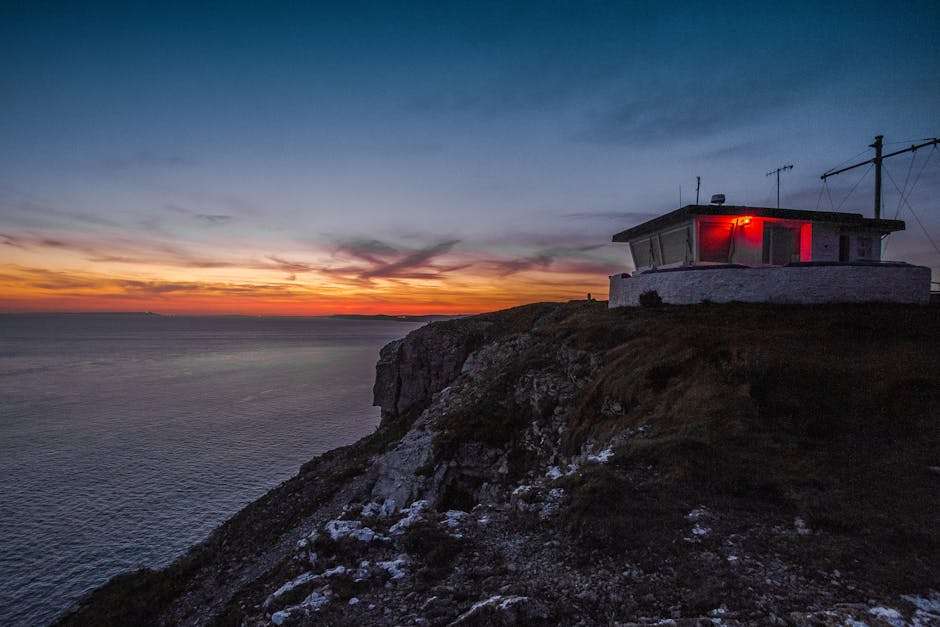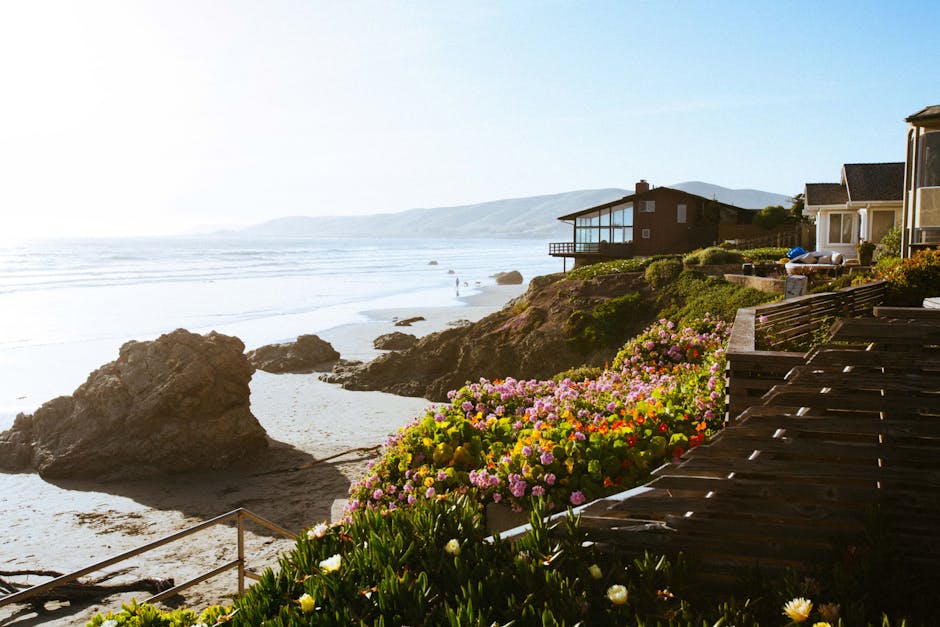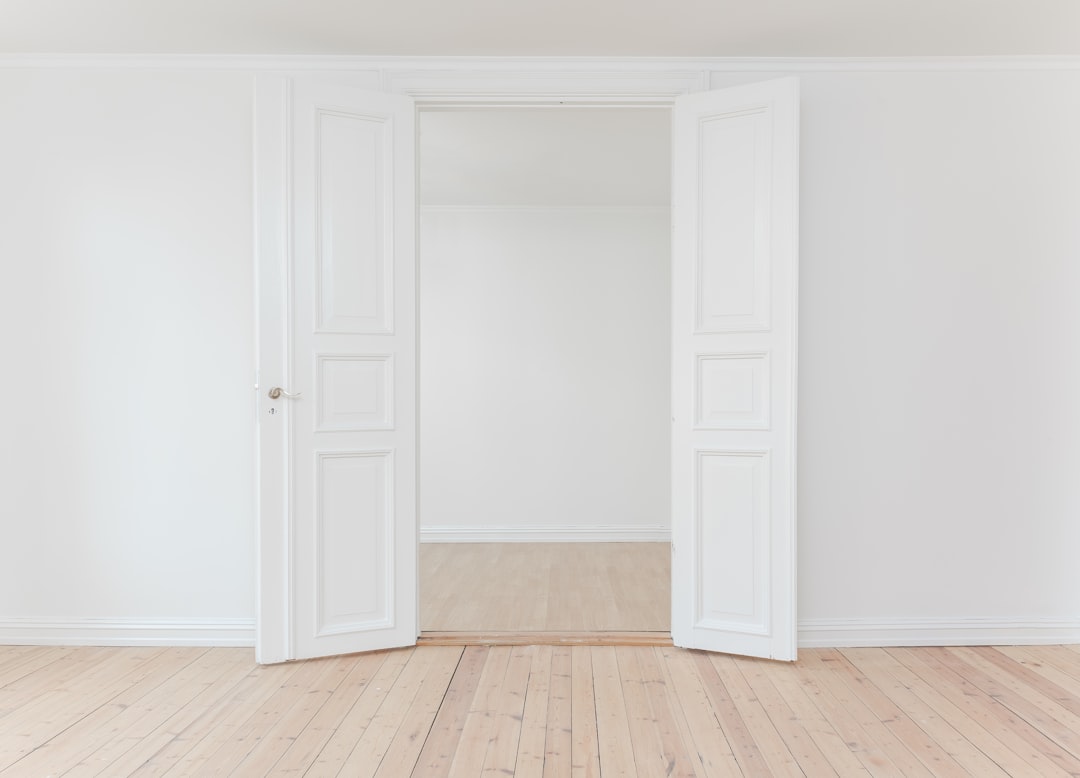Get the Best Deal: Comparing Second Home Insurance Quotes

Introduction
Compare second home insurance to protect your investment and enjoy peace of mind. Whether you have a beachfront retreat or a cozy cabin, finding the right coverage doesn’t have to be complicated. Here’s a quick rundown to get you started:
Second Home Insurance: Protects properties not used as primary residences.
Unique Risks: Vacant periods, climate exposure, and increased theft risk.
Essential Coverages: Named perils, liability extension, and custom add-ons.
Owning a second home is a dream for many, offering a sanctuary from everyday life. However, insuring a vacation home comes with unique challenges. Unlike your primary residence, second homes face specific risks due to their occasional use. This means you’ll need specialized insurance coverage to safeguard against the unique perils associated with these properties.
Vacation homes, whether nestled in the mountains or perched beside the ocean, demand particular attention to insurance details. These properties often sit unoccupied for long stretches, making them more vulnerable to burglary, vandalism, and undetected damage. Additionally, their locations may expose them to environmental hazards like floods, earthquakes, or hurricanes, requiring added protection.
We’ll explore the essential insights for comparing second home insurance, helping you navigate the complexities with ease.
Special Considerations for Second Home Insurance
Location-Specific Coverage
When it comes to insuring a second home, location is key. Vacation homes in areas prone to natural disasters like floods, earthquakes, or hurricanes will need special coverage. For example, a beach house in Florida might require hurricane insurance, while a cabin in California could need earthquake insurance.

Flood insurance is not typically included in standard policies. If your second home is near a body of water, you might need to get separate flood insurance through the National Flood Insurance Program (NFIP).
Similarly, earthquake coverage often requires a separate policy or endorsement. States like California, Alaska, and Hawaii are known for their seismic activity, so have this coverage if your property is in these areas.
Property Type and Usage
The type of property you own affects your insurance needs. Single-family homes, condos, and townhouses each come with different risk profiles.
For instance, a condo in the city may have lower insurance costs due to shared security features. On the other hand, a remote mountain cabin might be cheaper to insure structurally but could require more coverage for natural disasters.
If you plan to rent out your vacation home, you’ll need additional coverage. Landlord insurance is crucial for long-term rentals, protecting the structure and providing liability coverage. For short-term rentals, you might need a specialized policy that treats your property as a business.
Unoccupied and Vacant Homes
Unoccupied periods are a significant concern for second homes. Insurance companies classify a home as unoccupied or vacant if it remains empty for more than 30 days. This classification matters because vacant homes are at a higher risk for vandalism, break-ins, and unnoticed damage.

Unoccupied homes often have furnishings and personal belongings, whereas vacant homes are usually empty. Both situations can lead to higher insurance premiums due to the increased risk.
To mitigate these risks, consider installing security systems, smart home devices, and regular maintenance checks. These measures can also help you qualify for discounts on your insurance premium.
Understanding these special considerations can help you get the right coverage for your second home. Next, we’ll dive into how to save on second home insurance by exploring security measures and shopping around for quotes.
Can Two Homes Be Covered Under the Same Homeowners Policy?
When you own a second home, one of the first questions you might ask is whether you can cover both homes under the same homeowners policy. The short answer is no; you typically need separate policies for each home. Here’s why and how you can still save money through bundling options.
Separate Policies
Each home has unique characteristics and risks. Your primary residence might be in a suburban area, while your second home could be a lakefront property. Because of these differences, insurance companies require separate policies for each home. This ensures that each property is adequately covered for its specific risks, like flooding for a lake house or burglary for a vacation home that’s often unoccupied.
Bundling Options
Even though you need separate policies, you can still save money by bundling your insurance. Many insurers offer discounts if you get multiple policies with them. For example, you could bundle your primary residence insurance, second home insurance, and even auto insurance under one company. This can lead to significant savings, sometimes up to 25% off your premiums.
Combined Premium
Bundling your policies can also simplify your payments. Instead of managing multiple bills, you can often combine premiums into a single payment. This makes it easier to keep track of your insurance expenses and ensures you don’t miss a payment, which could lead to lapses in coverage.
Deductible
Another advantage of bundling is the potential for a combined deductible. Some insurers offer a single deductible for all your properties. For instance, if a storm damages both your primary home and your second home, you might only need to meet one deductible before your insurance kicks in. This can be a huge financial relief in case of widespread damage.
In summary, while you can’t cover two homes under the same homeowners policy, bundling separate policies can offer substantial benefits. It can lower your overall costs, simplify your payments, and even reduce your deductible. Next, let’s explore various ways to save on second home insurance, including using security measures and shopping around for quotes.
How to Save on Second Home Insurance
Saving on second home insurance can be easier than you think. Here are some practical tips to help you cut costs without compromising coverage.
Security Measures
Installing security systems can dramatically lower your insurance costs. Here are some options to consider:
Alarm Systems: A centrally monitored alarm system can deter break-ins and alert first responders immediately. This can reduce your premium by up to 20%.
Fire Detection: Smoke detectors and fire alarms are crucial for early fire detection. Some systems even notify local fire departments directly.
Break-In Detection: Motion sensors and smart locks can further secure your property against theft.
Smart Home Devices: Devices like water leak sensors, smart thermostats, and surveillance cameras not only provide convenience but also enhance security and risk management. These gadgets can make you eligible for additional discounts.
Shopping Around for Quotes
When it comes to insurance, not all policies are created equal. Here’s how to make sure you’re getting the best deal:
Comparison Shopping: Experts recommend comparing quotes from at least three different insurance companies. This helps ensure you’re not missing out on a better deal elsewhere.
Multiple Insurers: Don’t settle for the first quote you receive. Different insurers offer different discounts and coverage options.
Best Rates: Use online tools and resources to compare rates. Ensure you’re getting the best coverage at the most affordable price.
Bundling Policies
Bundling your insurance policies can lead to significant savings. Here’s how:
Home and Auto Insurance: Bundling your second home insurance with your auto insurance can often result in discounts of up to 25%.
Multi-Property Discounts: If you own multiple properties, consider insuring them with the same company. This can simplify your payments and lower your overall costs.
Single Insurer: Keeping all your insurance policies with one company can make it easier to manage your coverage and claims. Plus, you may qualify for additional discounts.
By taking these steps, you can effectively manage and potentially reduce your second home insurance costs. Next, let’s delve into insurance considerations if you plan to rent out your vacation home.
Companies Providing Second Home Insurance
When selecting a provider for second home insurance, it’s crucial to choose one that offers specialized coverage tailored to the unique needs of vacation homes and rental properties. Schneider and Associates Insurance Agencies provide comprehensive options that cater specifically to these types of properties, ensuring your investment is well-protected against various risks, including natural disasters.
Schneider and Associates Insurance Agencies
At Schneider and Associates, we understand the complexities involved in insuring second homes. Our policies are designed to offer peace of mind, featuring coverage for high-risk areas, including those prone to floods and earthquakes. We also provide additional options like Property Manager Service for homes in hurricane zones, ensuring quick assessments and repairs after a storm.
Our plans come with flexible liability limits and options for cash settlements, providing the adaptability needed for second home owners. We also encourage enhancing your property’s security with modern systems, which can help reduce premiums.
Additional Considerations
Security Measures: Advanced security systems can significantly lower insurance costs. Consider installing comprehensive alarms, surveillance cameras, and smart home devices to mitigate risks.
Bundling Policies: By insuring your primary and second home with Schneider and Associates, you can enjoy streamlined payments and potential discounts, simplifying your insurance management while saving money.
Choosing the right insurance provider is essential for the protection of your second home. With Schneider and Associates, you can be confident in receiving tailored, effective coverage designed for the unique challenges of owning a vacation home or rental property.
Frequently Asked Questions about Second Home Insurance
Is Insurance on a Second Home Cheaper?
No, insurance on a second home is generally more expensive than on a primary residence. Second homes are often seen as higher risk by insurance companies due to extended periods of vacancy. This increased risk can lead to higher premiums. According to American Family, vacation home policies can be two to three times more expensive than standard homeowners insurance.
What Happens if I Have Two Homeowners Insurance Policies?
Having two homeowners insurance policies on the same property can lead to complications. Double payments mean you’re paying more than necessary, and it can create administrative issues. Additionally, having overlapping coverage can be seen as insurance fraud, which is illegal and can result in severe penalties. It’s crucial to ensure that each property is covered appropriately without duplicating coverage.
Can You Get Mortgage Insurance on a Second Home?
Yes, you can get mortgage insurance on a second home, but it typically requires a separate policy. Lenders often mandate this insurance to protect their investment. The National Association of Insurance Commissioners (NAIC) provides guidelines to help you understand these requirements. Make sure to check with your lender to know what specific coverage is needed for your second home.
Conclusion
At Schneider and Associates Insurance Agencies, we know that insuring a second home can feel overwhelming. That’s why we offer personalized solutions tailored to meet your specific needs. Whether your second home is a cozy cabin in the woods or a beachfront property, our team is dedicated to providing you with the right coverage.
Our approach is to offer tailored coverage that considers your unique situation. We take into account factors like the location, type of property, and how you use it. This ensures you get comprehensive protection without paying for unnecessary extras.
We pride ourselves on our local touch. Our agents are familiar with the specific risks and requirements of different areas, allowing us to give you expert advice and support. We’re here to help you navigate the complexities of insuring a second home, so you can enjoy your property with peace of mind.
Ready to protect your second home? Get a quote today and let Schneider and Associates Insurance Agencies take care of your insurance needs.
The post Get the Best Deal: Comparing Second Home Insurance Quotes appeared first on Schneider and Associates Insurance.







